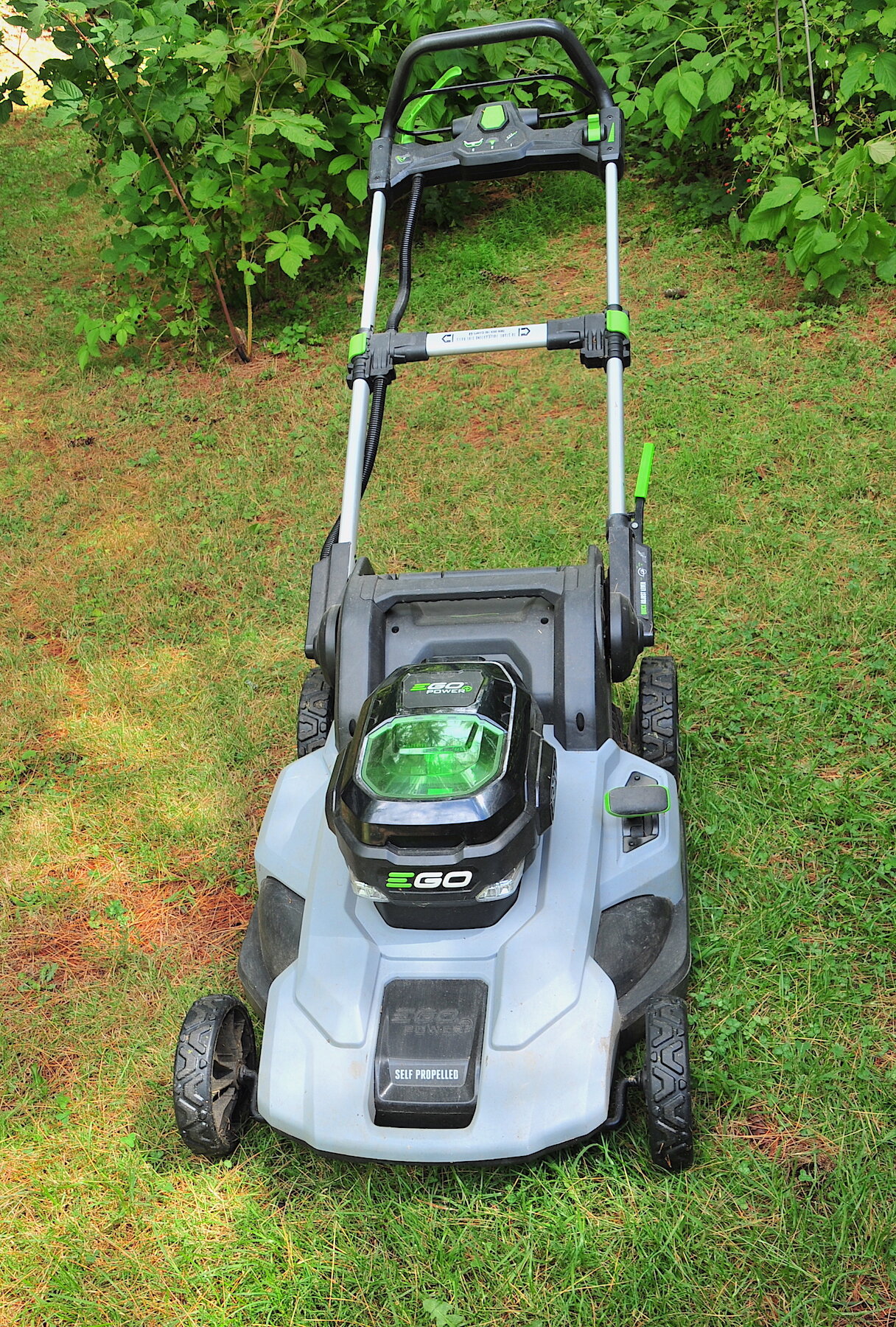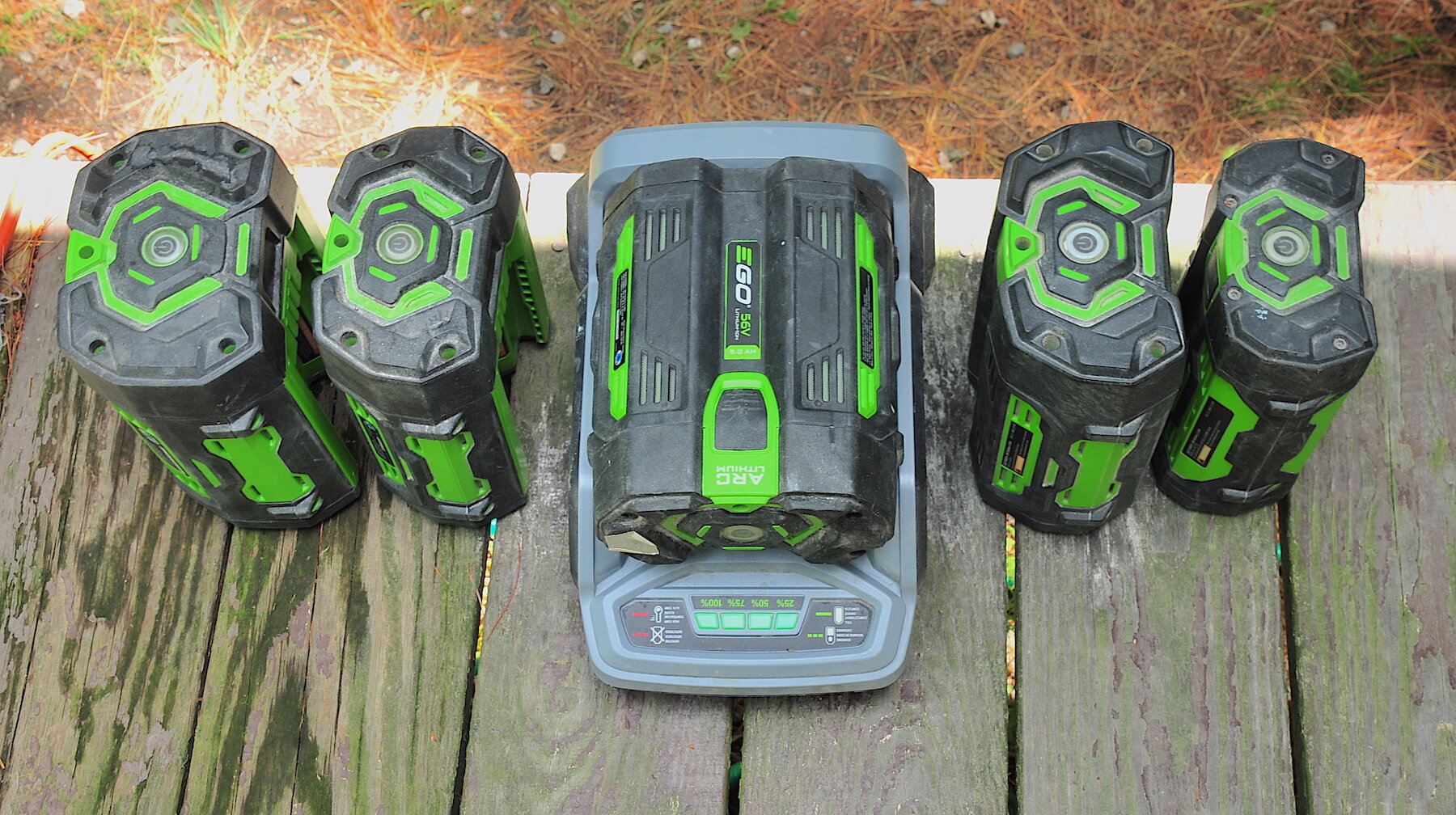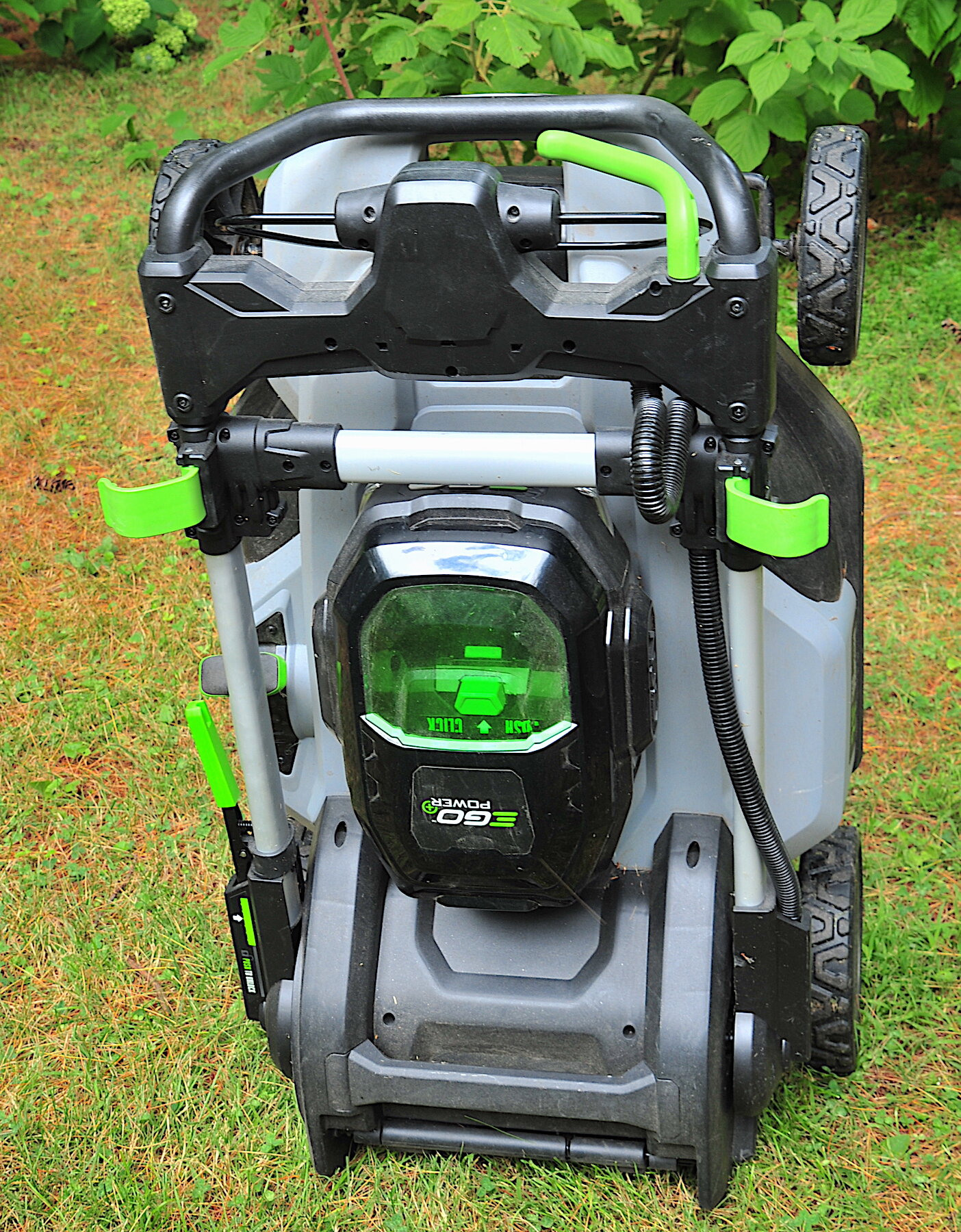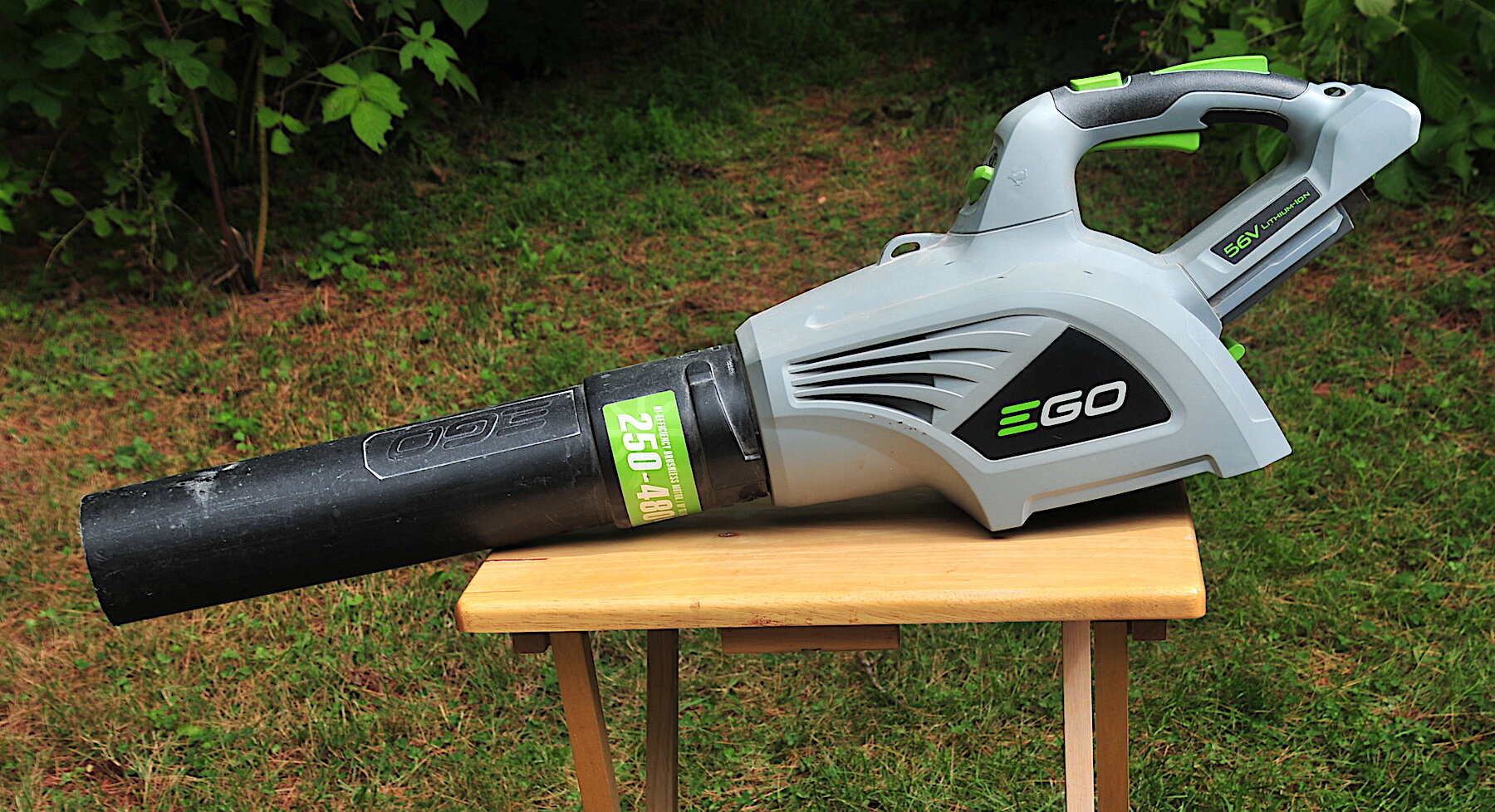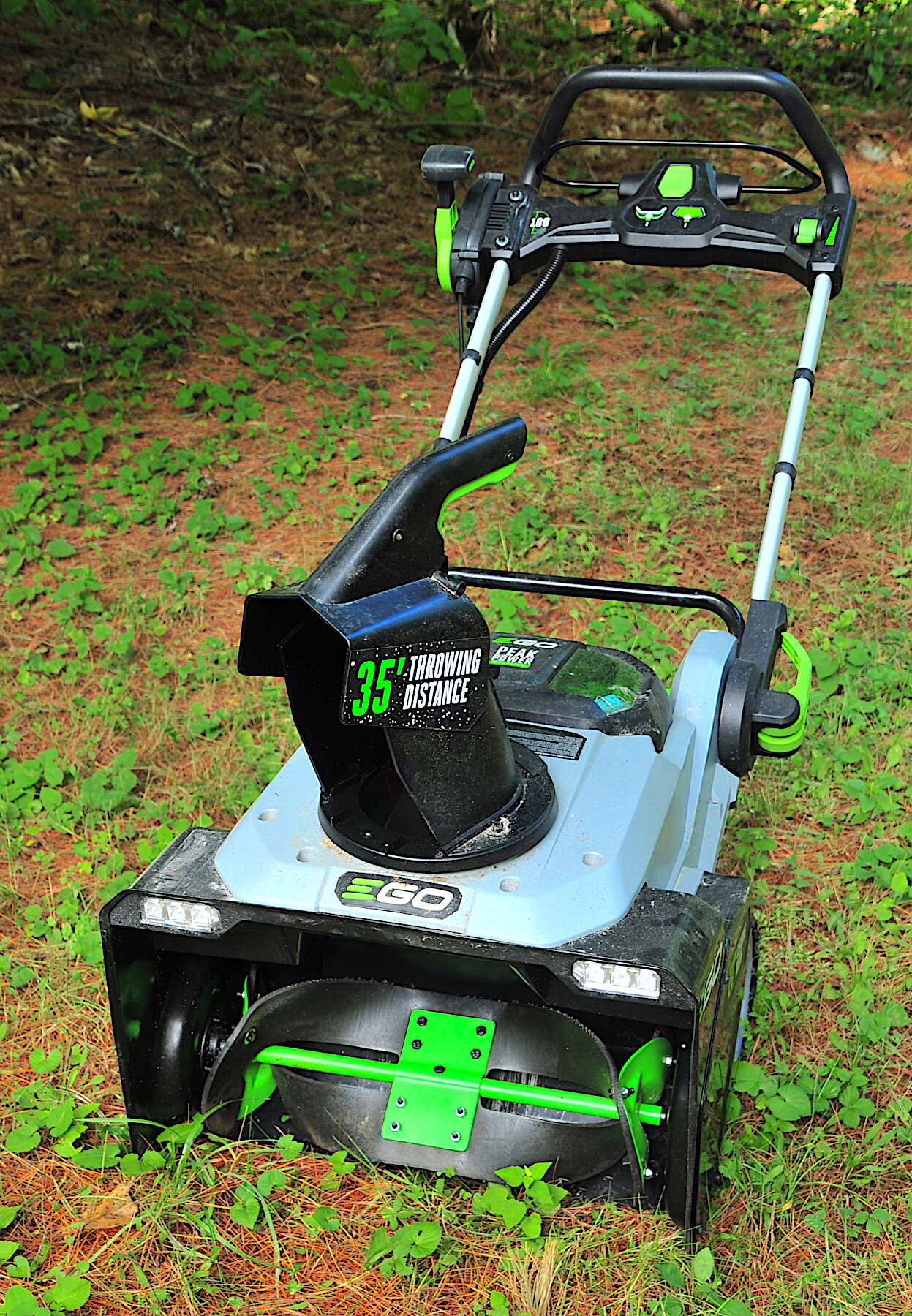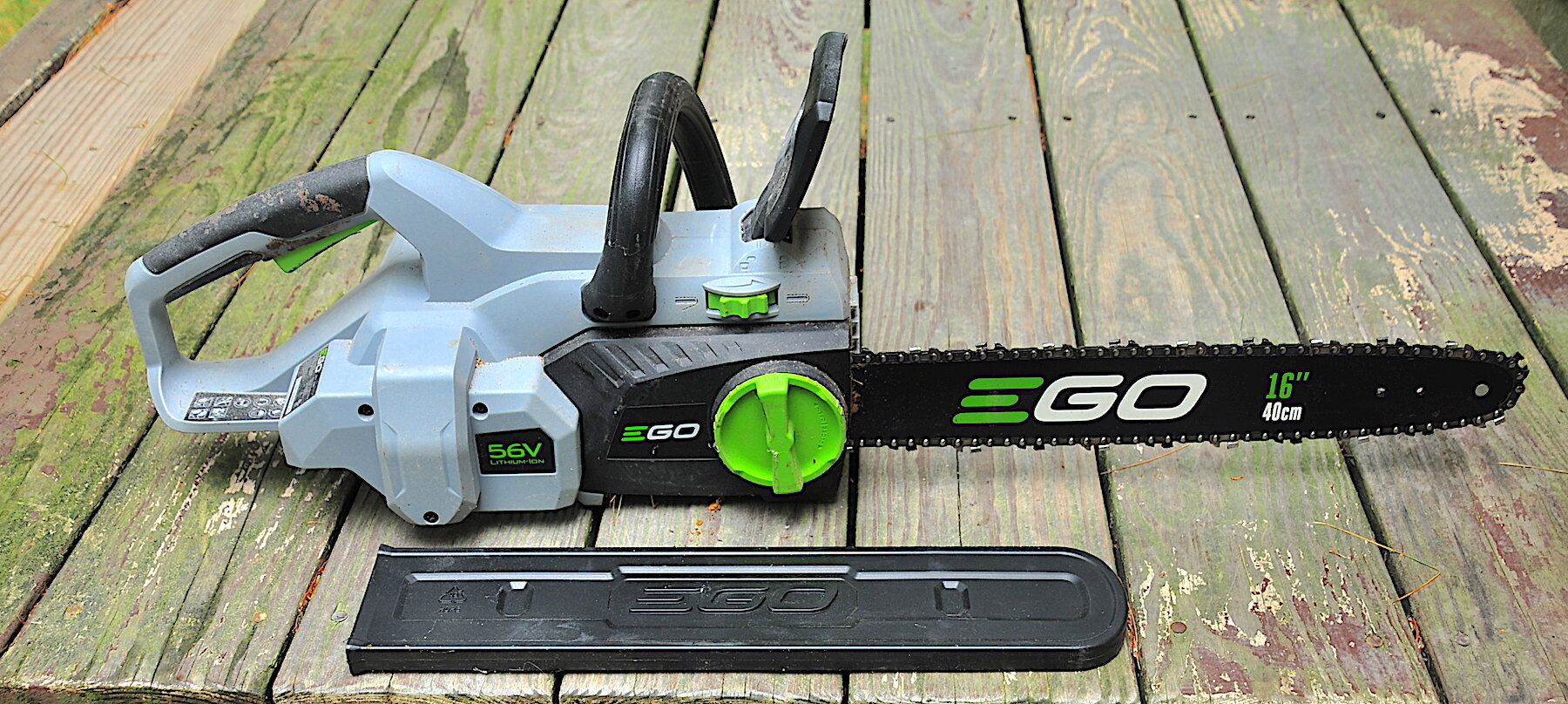Electric Property Maintenance Tools
By Erica Bartlett
Jennifer Hess uses her Stihl 12 ‘Pole Pruner at her home on Peaks Island. Photo courtesy of Jennifer Hess.
Mowing lawns, trimming weeds, and clearing snow are all familiar activities for homeowners. While most tools in use today are gas-powered, that’s starting to change.
According to Tim Currier, General Manager at Maine Hardware, Mainers are switching to electric tools for property maintenance at a steady pace. “I’ve seen an increase in electric units sold each year since we started carrying them about five years ago,” said Currier.
Part of this change is a result of improvements to both the technology and battery life, giving most electric tools comparable performance to their gas-powered counterparts. Electric tools are also a cleaner choice since they don’t generate harmful emissions.
Lawn mowers, leaf blowers and chain saws
Electric lawn mowers are available in a variety of models and sizes, including walk behind versions, with batteries that will mow for an hour or more on a single charge, and riding mowers – including the new zero turn models – that can go 2.5 hours or longer on a charge.
Additionally, with winter on the way, it’s a good time to think about snow blowers, which come in electric models varying from hand-held snow shovels to snow blowers capable of clearing a 14-car driveway on a single battery charge. And important to note for our Maine winters, many electric models claim to have the power to remove even heavy, wet snow, including what the plow leaves at the end of your driveway.
In addition to mowers and snow blowers, other electric tools gaining in use include string trimmers, leaf blowers, hedge trimmers, pole pruners, and even chainsaws.
Benefits to homeowners
The benefits are many. Compared to gas-powered tools, electric tools are easier to use, significantly quieter, less expensive to own and maintain, and better for our health and the health of the environment.
Like electric cars, electric tools require less maintenance since they don’t need oil, spark plugs or air filters. In the time he’s been selling electric tools, Currier says he’s seen minimal requests for repairs, whereas gas-powered tools tend to need more frequent maintenance.
An even bigger benefit is that electric tools don’t use any gasoline, which is one of the reasons Jennifer Hess of Peaks Island chooses them. “There are no gas fumes, and I don’t have to worry about gas disposal,” she said.
Hess owns a handful of electric tools from STIHL – a lawnmower, chainsaw, leaf blower, weed trimmer, and pole pruner.
No gas also means less air pollution, which is a big reason Erik Bartlett of Casco started buying electric tools four years ago. He now has a lawnmower, string trimmer, hedge trimmer, chainsaw, and snow blower from EGO (pictured above), and he appreciates how much cleaner they are without the gas.
“I switched to electric since I always felt guilty about the gas engines that pollute a lot more than even modern cars,” said Bartlett.
That pollution adds up. The Environmental Protection Agency (EPA) estimates that each year, lawn care generates 13 billion pounds of pollutants. And, when you consider that the average snow blower produces as much carbon monoxide emissions in an hour as driving a car 70 miles, it’s easy to see how switching to electric can reduce air pollution.
Finally, there’s the question of price. Most electric tools are comparable in price to gas-powered versions, although the initial purchase of the batteries and charger adds to the up-front cost. Those batteries can last for a long time, though, and if the tools are all the same brand, you can swap batteries between them, reducing the number of batteries needed. And, once you have a charger for the brand, you can use that for all of your batteries.
Once you factor in the cost of gasoline, disposal, maintenance, and the environmental benefits, switching to electric pays for itself.
For most homeowners, electric tools such as lawnmowers, leaf blowers, hedge trimmers, and snow blowers have all the power and versatility needed for property maintenance, while being quieter, lighter, smaller, and more reliable.


